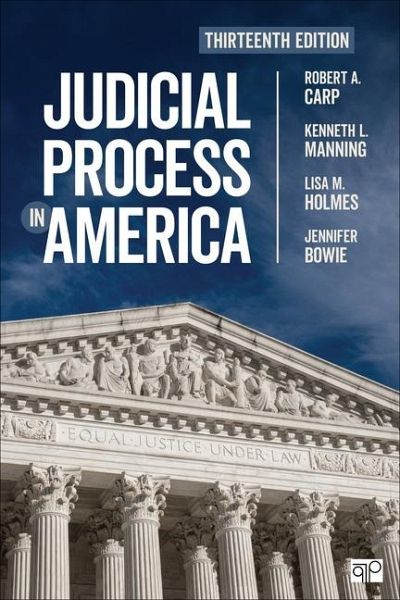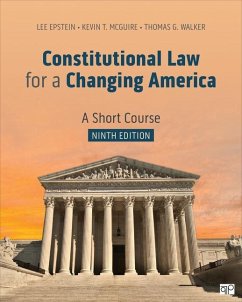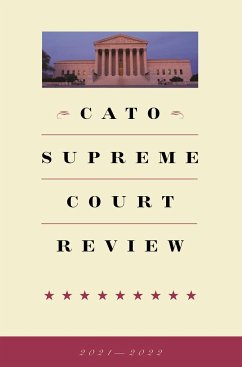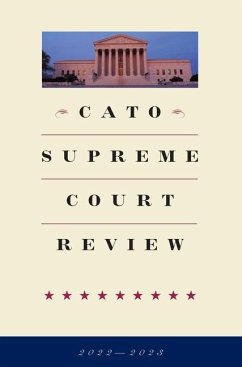Nicht lieferbar

Judicial Process in America
Versandkostenfrei!
Nicht lieferbar
Judicial Process in America, Thirteenth Edition, is a market-leading and comprehensive textbook for both academic and general audiences. Authors Robert Carp, Kenneth Manning, Lisa Holmes, and Jennifer Bowie provide a comprehensive overview of the link between the courts, public policy, and the political environment.








